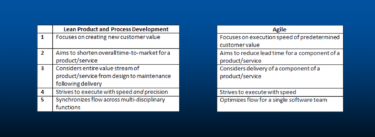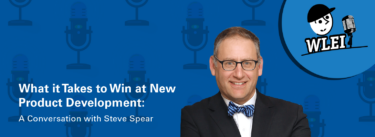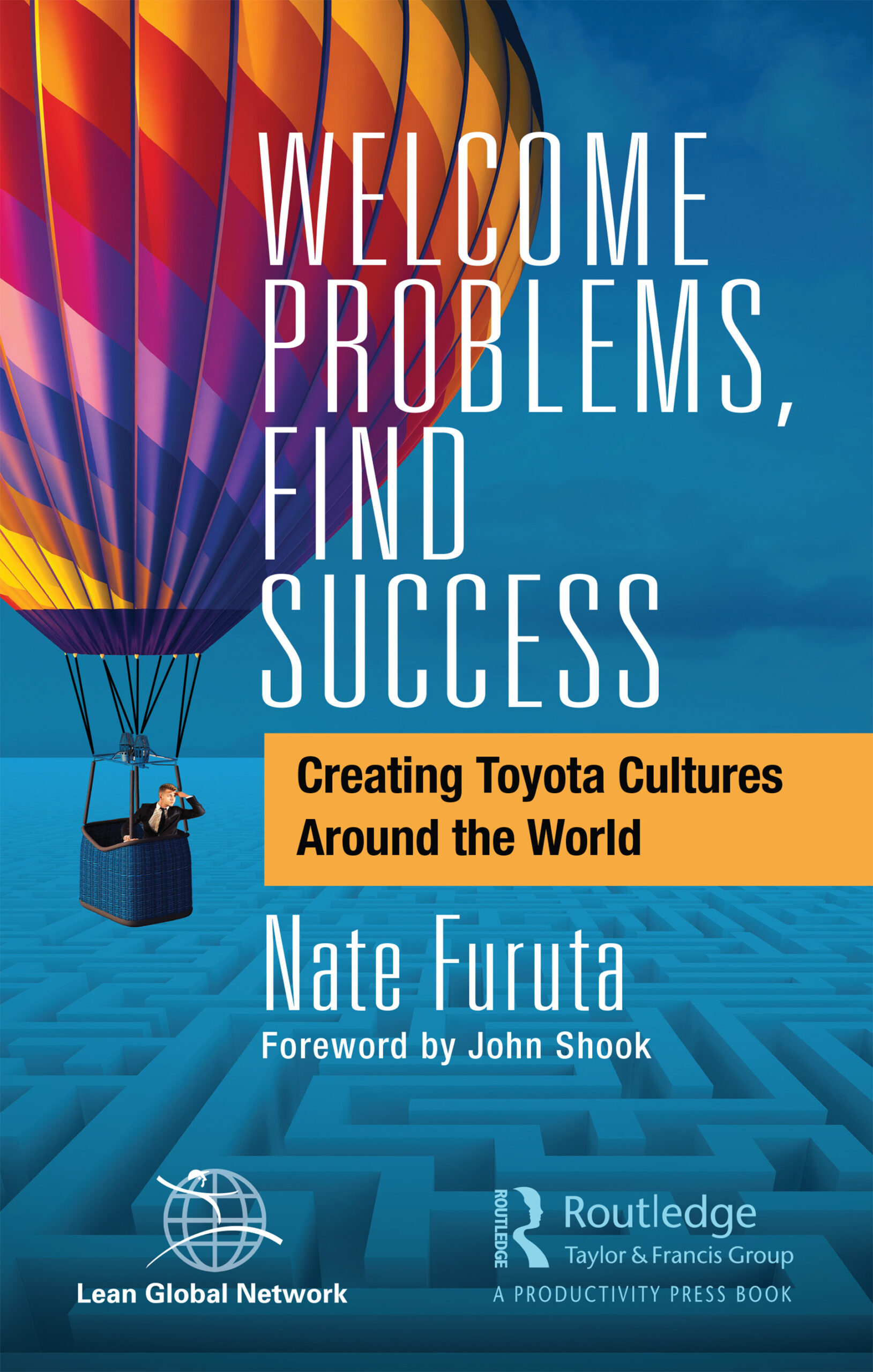Lean Product and Process Development Learning Group Update: Technical Organizations Share Common Practices to Spread the Learning
The Lean Product and Process Development (LPPD) Learning Group (LPPD) event in early October 2019, the second of the year, brought together the diverse industries of oil and gas technologies, building products, appliances, contemporary furniture, heavy construction machinery, healthcare, and drilling equipment to share and learn at the event, hosted by fellow learning group member US Synthetic in Orem, UT. Each organization brought specific challenges to discuss in product and process development for new products and services. The theme was “spreading the learning.”
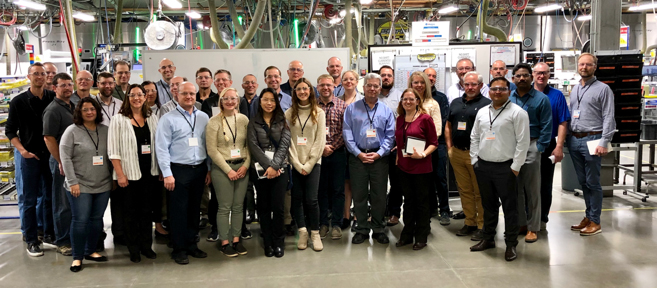
Participants in the Fall 2019 LPPD Learning Group event
LEI’s Lean Product and Process Development (LPPD) initiative was formed to work with and bring together forward-thinking organizations to accelerate the spread of lean thinking and practice in product and process development across very diverse industries. The organizations that met in Utah are co-learning partners in the LPPD Learning Group seeking to transform their product and process development systems by changing the way new value is created. A valuable aspect of the Learning Group is the ability for each of the organizations to come together and meet twice annually with one partner acting as the main host.
Over 40 people from seven organizations actively participated in the session. The agenda was once again customized before the event using a process with input from LPPD coaches and key contacts from the Learning Group partners. Sets of topics were selected and narrowed down to help close knowledge gaps that partners were experiencing with their current development work.
US Synthetic Welcome and Overview
US Synthetic leadership welcomed the Learning Group to the facility and Eric Ethington, LPPD program manager, gave an overview of the agenda. Rob Galloway, president of US Synthetic, presented on the organization’s “culture by design” and efforts around building people capability.
Jim Womack’s Day One Message
Jim Womack, founder of the nonprofit Lean Enterprise Institute (LEI) in 1997, shared the origins of LEI and its linkage back to the original research in the automotive industry that led to the publication of The Machine that Changed the World in 1990. The book introduced industry to the term “lean” and “lean enterprise” to describe Toyota’s operating and managing models, with detailed research into the core elements of any enterprise. Jim reflected that most organizations focused on the “lean production” element and its chapter, skipping the chapter on lean development.
Newest Member Introduction and Knowledge Gaps Sharing
The newest member of the LPPD learning group, a window and door designer and manufacturer, shared its history before discussing the experiments in the LPPD space that the team has completed. Having spent the prior 12 months as a learning partner with LEI’s LPPD team, this company shared its experiences using knowledge gaps, obeya spaces, and challenges with synchronizing related programs and activities.
Growth in Manufacturing Readiness Learning
The next partner shared the evolution from early operational engagement with new product development, which, after more experimenting, has spread to be standard manufacturing readiness criteria. Topics addressed were how the company shared how it has sustained and improved the criteria, as well as visually managed the work across different functions and sites. The partner connected the work to author and partner program leader Jim Morgan’s management system (MS) model that covers the impact of operating system (OS) and leadership behaviors (LB), MS = OS x LB.
Spreading the Learning in Clinical Design for Healthcare
Another new partner from healthcare shared LPPD experiments in the area of clinical design. The team works to design emerging clinical pathways for patients in a large, complex, health system that comprises multiple hospitals, hundreds of clinics, and 26,000 employees who handle over 300,000 patient days, 104,000 emergency visits, 54,000 surgeries, and 2.1M outpatient clinic visits. Past LPPD efforts re-structured the work into a study phase and an execution phase.
Plan for Speed—The Speed of Learning
The next partner drew parallels of its organization’s challenges with speed with the history of rock climbing El Capitan (“El Cap”) in Yosemite National Park. In 1958, the first ascent of “The Nose” took 47 days. The current climbing record for The Nose is under two hours. The partner talked about the recipe for speed and its critical aspects and translated this to how they will develop shared plans with customers and key stakeholders, as well as for setting radical yet achievable targets.
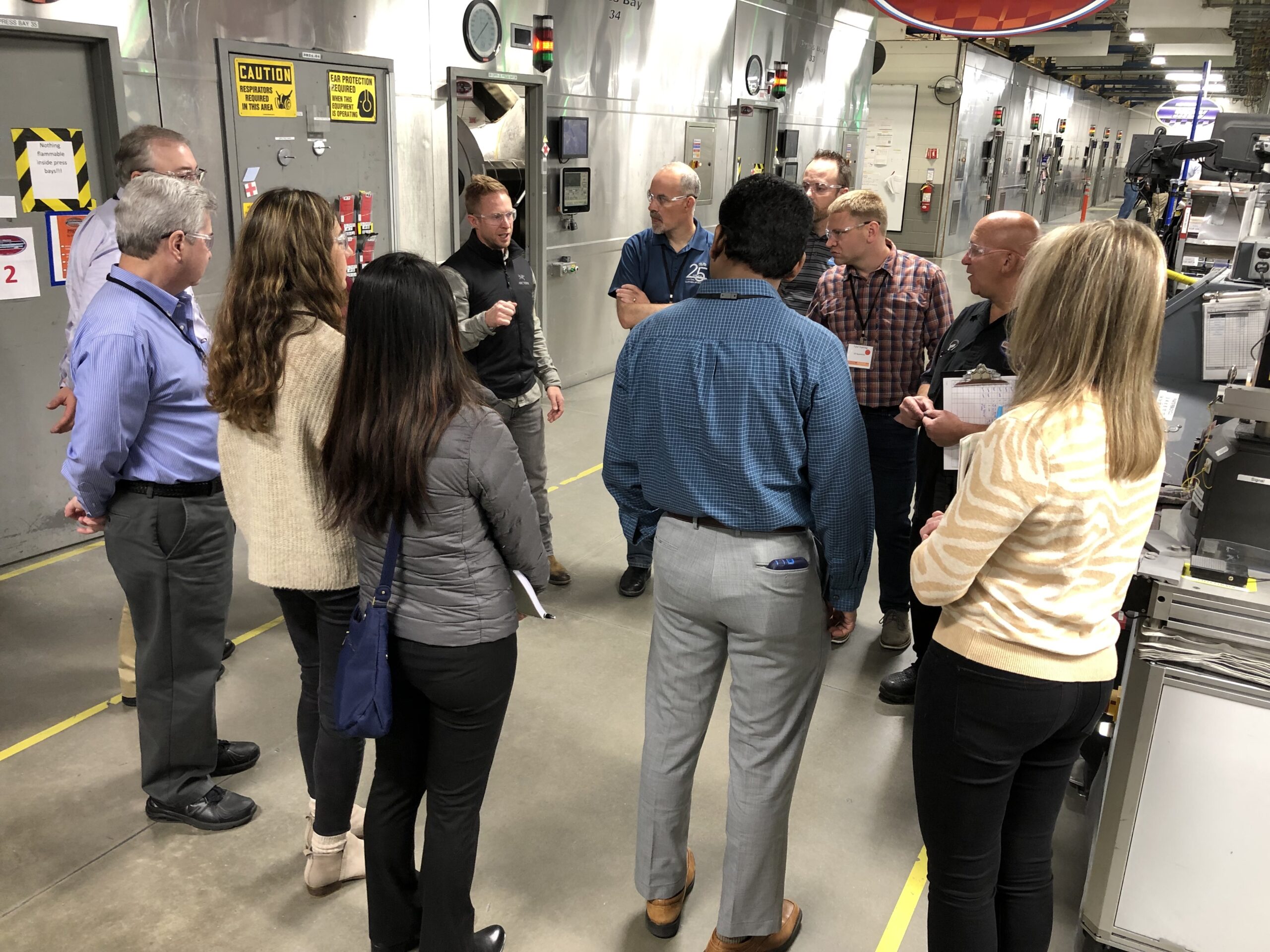
“Go-and-see” exercise
US Synthetic Gemba Visits
Over the course of the two days, the learning group divided into smaller teams and did go-and-see LPPD observations in specific areas of practice.
Partner Lessons of the LPPD Steering Team
Another partner shared a unique perspective on four years of steering team functionality. Managers stressed the importance of senior leaders being enrolled members. The steering team must strive to be an “enabling bureaucracy” and members must leverage the power of others.
Driving a Digital Evolution
This partner shared four years of learning and progress in moving to a model-based enterprise with its dimensioning system, a key enabler for bringing people, processes, and tools together as a backbone for design. The partner also shared the importance of face-to-face communication when spreading the knowledge and expansion of the system.
US Synthetic Manufacturing Overview and Tour
US Synthetic leadership gave an overview of its manufacturing processes, as well as a history of improvements during the prior 15 years to production flow. After the introduction, the participants broke up into four groups and headed out to different product cells to go and see the work and make observations, before sharing feedback later in the conference room.
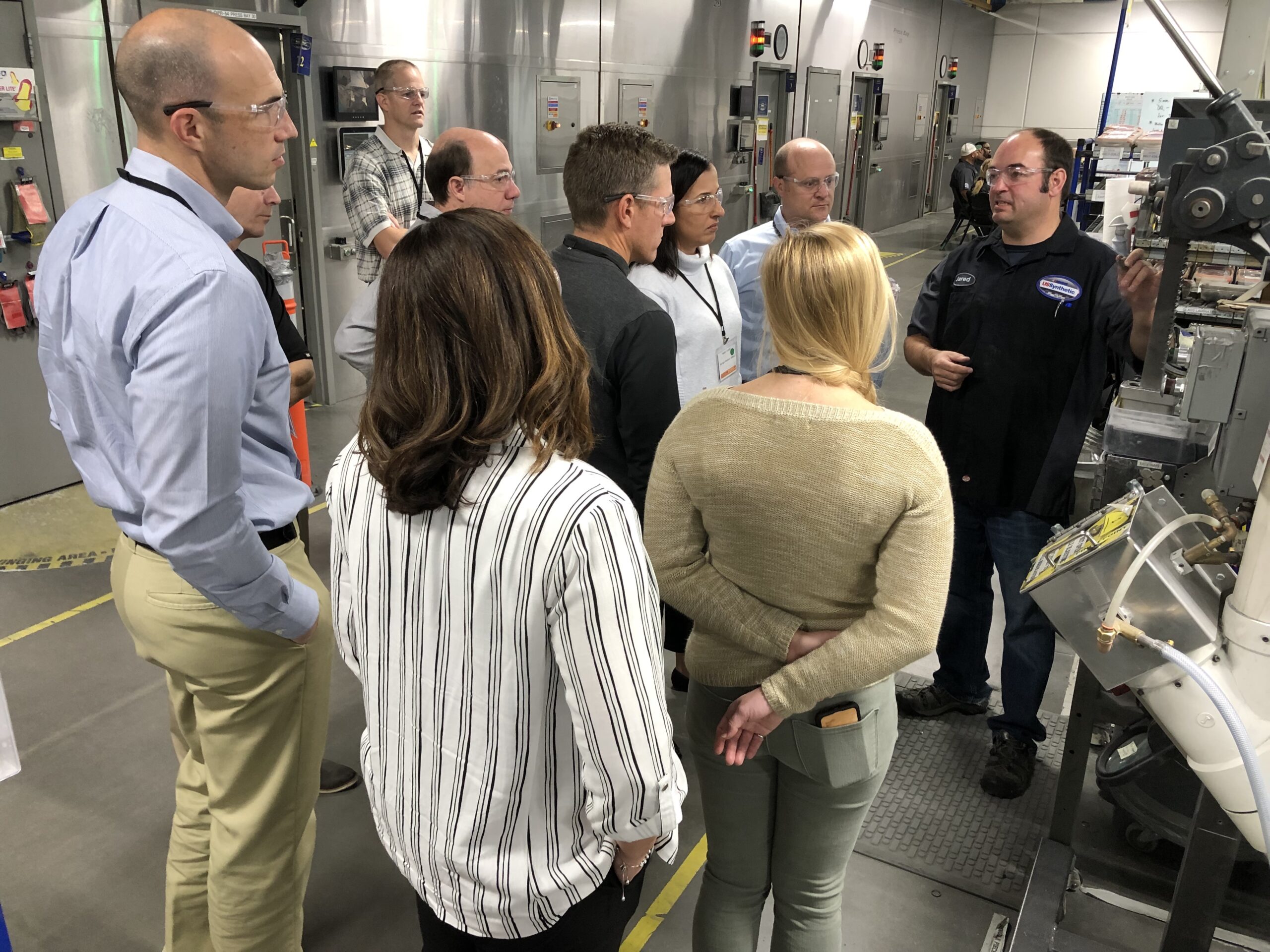
“Go-and-see” stop at an operator’s station
Learning Globally
This partner shared its LPPD operating framework that has been developed to help internally spread the learning and standardize good practices across numerous design centers and manufacturing locations on several continents. The internal learning group meets monthly in face-to-face sessions covering repeating topics and special topics.
LPPD Musings by Jim Womack
At the end of the day, Womack shared his thoughts on LPPD. He said two keys to sustaining and spreading lean product and process concepts internally were coaching and courage.
“The central problem with spreading learning is that you can’t do something you don’t understand,“ Jim said. “So, you have to do it a couple of times to understand it. And you will not sustain something you don’t believe in.”
The plan-do-check-act process of experimentation that produces the new knowledge needed for successful lean development creates understanding and a “profound belief that there is a better way” to create products and services, Jim explained. “That’s why yokoten [Japanese for spreading learning] can never be as fast as you want it to be. If it’s moving at super speed behind a flag and a slogan, I pretty much guarantee that you’re wasting your time.”
But to try experiments, people need courage. Providing it is one facet of the LPPD learning group meetings. “Trying new things is hard and most people are pretty timid,” Jim said. “But if you get people together, such as in this room, even though everybody’s suffering, struggling, and trying something new, it actually makes you feel better” because you realize you are not struggling alone.
Individual Organizational and Group Reflection with Coaches
Each organization once again took time to reflect with colleagues and their LEI LPPD coaches. Teams used a special reflection template to help organize their thoughts. Then each partner summarized its own organization’s challenges and shared the reflection and upcoming actions with the entire learning group.
Wrap-Up & Closing Remarks
Eric Ethington provided the closing remarks before members adjourned. The next LPPD Learning Group meeting is planned for Spring 2020. The LEI third annual “Designing the Future” Summit is set for June 18-19, 2020, in Traverse City, MI.


